The Long, Long Trailer (1954)
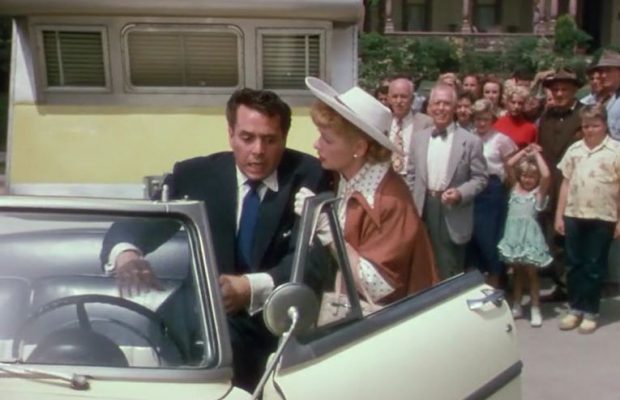
Toronto Film Society presented The Long, Long Trailer (1954) on Sunday, October 15, 1989 in a double bill with The Dark Corner as part of the Season 42 Sunday Afternoon Film Buffs Series “A”, Programme 2.
Production Company: Metro-Goldwyn-Mayer. Producer: Pandro S. Berman. Director: Vincente Minnelli. Screenplay: Albert Hackett and Frances Goodrich, based on a novel by Clinton Twiss. Photography: Robert Suriecs. Editor: Ferris Webster. Music: Adolph Deutsch.
Cast: Lucille Ball (Tacy Collini), Desi Arnaz (Nicholas Carlos Collini), Marjorie Main (Mrs. Hittaway), Keenan Wynn (Policeman), Gladys Hurlbut (Mrs. Bolton), Moront Olsen (Mr. Tewitt), Bert Freed (Foreman), Madge Blake (Aunt Anastacia), Walter Baldwin (Uncle Edgar), Oliver Blake (Mr. Judlow), Perry Sheehan (Bridesmaid).
At the time when this second film shown tonight starring Lucille Ball was made, she and her husband, Desi Arnaz were a hit team on the ‘I Love Lucy’ show. The review in Variety said: “For those itching to explore the wide-open spaces in a trailer, as well as those who’ve been hoping for Lucille Ball and Desi Arnaz to be transported to a larger screen, Metro has concocted this merry little ditty that ought to be over big at the box office. It’s a lighthearted, genuinely funny comedy that lapses into slapstick at the drop of a hat and shows both stars to best advantage.
In a way, The Long, Long Trailer is an apt title. The trailer is one of the stars of the picture, and it’s well cast at that. At the same time, and perhaps inevitably so, the film provides one continuous plug for the shiny house-on-wheels which Miss Ball and Arnaz alternately use as a prop and a set. Whatever exhibs may have to say about TV as competition, in this case it’s certainly working to their advantage. There are few places in the country where the Ball-Arnaz combination isn’t known, and the picture’s theme will intrigue the audience as to its comedy potential. Nor will they be disappointed.
Not a trick has been missed in squeezing the laughs from every conceivable situation. In fact, the picture takes the couple from the moment they see the trailer they want—it costs them about five times as much as they intended to spend–through a series of adventures and misadventures to the point where Miss Ball is ready to sell their ‘house’ and leave Arnaz in the process. Like the ‘I Love Lucy’ TV show, The Long, Long Trailer strings together situation comedy without a letup, barely giving the audience a chance to catch its breath. After a somewhat slow start, the team really hits its pace. Some of their antics involving the trailer are priceless.
Both Miss Ball and Arnaz deliver stock performances. Their timing is perfect and the dialog provided by Albert Hackett and Frances Goodrich is clever. Miss Ball occasionally gives in to the temptation of being overly cute but, judging again by TV, this shouldn’t bother the audience. Arnaz has a sure touch and provides a perfect balance to his wife’s antics. His brief delivery of ‘Breezin’ Along with the Breeze’ which Miss Ball, and of a short comedy with a Latin touch, is pleasing and well-integrated. The rest of the cast easily gets into the spirit of the thing. Keenan Wynn has an all-too-brief part as a policeman and Margorie Main gets laughs as the eager-beaver trailerite. Vincente Minnelli’s direction accentuates the nonsensical aspect of the story. At the same time, he wisely lets the camera roam through Yosemite National Park for some pretty exciting views. Ansco color is good in the outdoor settings but doesn’t give true reproduction in the fleshtones and in some of the interior shots.”
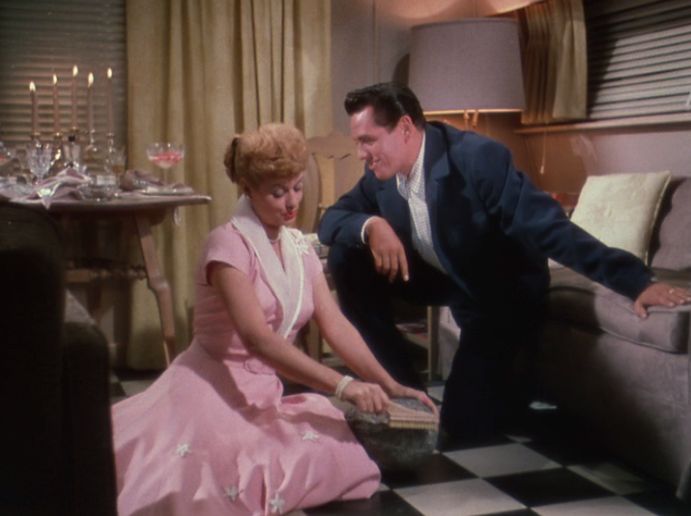
In this case, The New York Times weren’t too impressed with the film. They say: “The nation-wide popularity of Desi Arnaz and Lucille Ball as TV’s most brashly energetic Mr. and Mrs. team should serve as gilt-edged assurance that their first co-starring film will outdraw Gone With The Wind. Every pulse-taken indication of the seismic effects of this pair would seem to suggest that their picture will rack up a record score. Whether it will, we offer, is something else again. This writer begs to be excused from holding his breath until it does. For the sneaky fact is that this conveyance is a long, long turn on the sort of trailers that Lucille and Desi usually do on TV. It is an hour and a half of the sort of nonsense you might get in one good, fast ‘Lucy’ show. This is not to say that the characters whom the couple play on TV are represented in the picture–not by name at least–or that the usual supporting familiars are anywhere to be seen. The kids are here blithely playing a couple of happy newlyweds who go off for a honeymoon in a trailer, in which they later intend to live. And, except for a few brief appearances by Marjorie Main and Keenan Wynn, they are the only performers–they are the trailer, the New Moon. But there isn’t much danger that the madcaps whom the writers have contrived will be regarded by the faithful as other than the yelp-mates of TV. Tacy, the wife, is still a nitwit with a benign and vacant stare and Nicky, the spouse, is still a good sport with more patience than passion–or brains. And there isn’t much peril that the sequence of adventures designed for them will be mistaken as drama on any but the lowest slapstick plane.”
In the book Loving Lucy, the writers inform us that “I Love Lucy” accomplished in a mere fifteen months what Lucille Ball had been striving to achieve for over 18 years; it made Lucy a household name, a star by every definition. By the time Little Ricky/Desi IV were born on January 19, 1953, the Arnazes were television’s most popular performers, and their popularity made them prime candidates for lucrative motion picture offers. As early as May 1952, Desi became interested in acquiring film rights to the Clinton Twiss novel about life in a motor home. To his chagrin, MGM outbid him. MGM, in this instance, was producer Pandro S. Berman, one of Lucy’s old RKO cohorts, who agreed with Desi that the Arnazes should star in the property. The other studio brass, however, had reservations. “Metro,” Berman later recalled, “wanted no part of it. They subscribed to the theory that the audience wouldn’t pay to see actors they could get a home for free. But I insisted these were different parts, and Lucille and Desi could make the picture hilarious. If the picture was funny enough, I had no worries that enough people wouldn’t pay to see it.”
On February 4, 1953, just two weeks after Lucy’s babies arrived, Variety announced that Lucy and Desi had been engaged by MGM at a whooping $250,000 combined salary to star in the film. Director Vincente Minnelli, in his memoirs, recalled the production as a very happy experience: “On that picture we were all lovely and talented and well-mannered… All film-making should be as easy… There were times when the action was broad, and those were the opportunities Lucy grabbed hold of and ran away with… Lucy is one of the few comedic talents who can be broad and uniquely human at the same time.”
Notes compiled by Caren Feldman

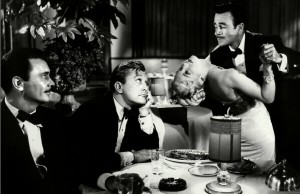
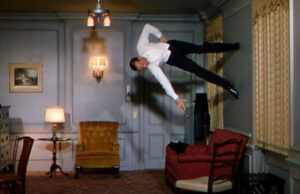
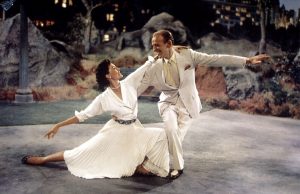






Leave a Reply